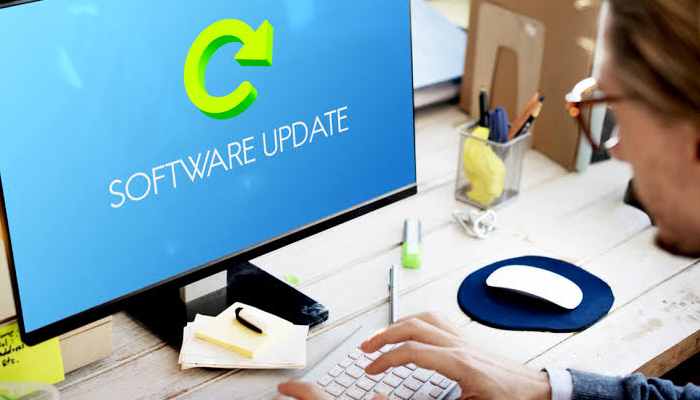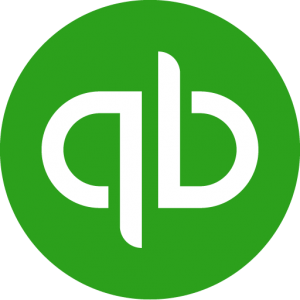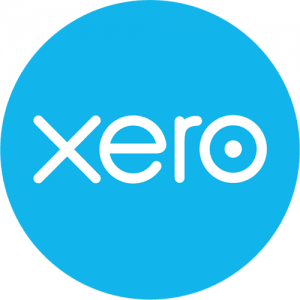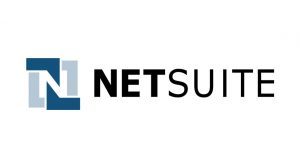
1000+
customers

50+ countries
across the world

Outsourcing leader
since 2008

Technology-driven
services

Stringent
quality processes
6 Signs Showing Your Business Accounting Software is Outdated
Last updated: 25 Jan, 2024 By Puneet Sharma | 6 Minutes Read

Many businesses have been implementing legacy accounting methodologies, and the same has been serving them well for many years. However, these systems were designed to meet the requirements of yesterday. It lacks what most forward-looking companies need today and in the future.
Modern finance now requires capitalization on automation to process transactions effectively. You will also need to perform financial close faster and deliver thorough business insights in real time.
Today, many business owners have opinions that their inventory management system is very manual, and hence, there is duplication in data entry, the software takes ages to pull financial reports, their CRM is completely disconnected from other systems, and much more.
Hence, it is advisable for growing businesses to consider modern accounting options like NetSuite accounting software which provides an integrated ERP (Enterprise Resource Processing) giving you complete visibility into all the aspects of your business.
6 Signs That Show Your Accounting Software Needs an Upgrade
1. No Mobile Capabilities
Warning signs that you should look out for:
- Your accounting software does not provide applications for iOS or Android.
- It has limited functionality on mobile devices.
- It works on your mobile device but lacks essential features.
This proves to be a problem because about a decade ago, accessing your accounting software on mobile devices was a rare luxury but now, a lot has changed. With the recent advancement in mobile technology and the trend to have distributed teams, mobile access becomes essential for business leaders.
New accounting software such as QuickBooks, Wave, Xero, and NetSuite can help in this regard as iOS and Android functionality is standard for them. They allow you to perform your accounting tasks remotely with as much ease as when you perform them from your computer at work. Hence, you can be more updated about the financial health of your business.
With a subscription to QuickBooks Online, you get access to mobile apps for free which are designed specifically for essential on-the-go workflows.
2. No Recent Updates
It is crucial for any software company to improve and update its software consistently. The lack of updates shows that the accounting software vendor is not focused or the software is about to be discontinued in the near future. Hence, if your accounting software has not been upgraded in months, it is time to find something better.
Change can be intimidating, but it is important to find software that best works for your company’s requirements. It is imperative that your accounting software is upgraded annually (at least) to inculcate changing tax laws.
For example, if your accounting software has not been updated since the passage of the Tax Cuts and Jobs Act in late 2017, it is a possibility that you could be missing out on several tax credits and deductions because your accounting software does not know to look for them. Situations can be even worse if you are taking deductions that your outdated software still thinks are valid (like entertainment expenses) and flagging yourself for an IRS audit.
3. Lacking Adequate Automation Features
Warning signs that you should look out for:
- You have a manual process in place to send monthly invoices to the same customers.
- Expenses are managed by tallying up faded, paper receipts.
- Several hours are spent at the end of every month in reconciling bank statements with your accounting software.
This can prove to be a problem because, in this era of advancement, automation is taking over numerous industries including finance and accounting businesses. If you are not utilizing accounting software with automation features, you are wasting a large portion of your time and lagging behind in technology. Manual processes are also prone to errors which automation eliminates as long as you have clean data.
Updated accounting software can eliminate the data entry tasks out of payroll, invoicing, bank reconciliation, and expense management.
4. Your Accounting Software does not Support Integration with New Applications
Warning signs that you should look out for:
- You are in mess with tedious data entry processes as your expense management or invoicing applications do not integrate with your core accounting tool.
- The accounting software integrates with the older version of your applications, but since they have been updated, they do not work well together.
- The accounting software you use supports integration with only a few applications.
It is important for your accounting software to integrate well with the applications that you wish to use for various tasks throughout your business structure. You should not leave the decision of which accounting tool or app to use for your accounting software.
Modern accounting software like Xero, NetSuite, and QuickBooks integrate perfectly with more than 500 applications. This implies that these software support however you like to send invoices, track expenses, accept payments, or do anything you wish to do with your business finance and accounting.
5. Your Accounting Software is not Scalable
As your business expands, the burden of finance can instantly become overwhelming. You have to handle new subsidiaries with more currencies, regulatory frameworks, tax jurisdictions, and product costs.
The legacy accounting software is not ideal to scale as the business expands. Hence, when your business is expanding, you need accounting software that grows with your business and is able to cope with the new requirements.
New accounting software can be helpful as:
- They quickly streamline financial consolidations.
- Helps to gain in-depth visibility across all entities.
- Helps to easily share data and workflows in real time – anytime, anywhere.
- They perform financial closes significantly faster.
6. Various Limitations
An old version of the software (desktop version) or a beginner’s accounting package may provide a specific number of transactions and it becomes a problem when the amount exceeds. For example, in 2011 accounting software like QuickBooks Pro and Premier editions had a limit (14500) on how many items and names they can accommodate in one set of company books.
And Xero could only accommodate volumes up to 1,000 Sales invoices (Accounts Receivables), 1,000 Purchases bills (Accounts Payables), and 2000 bank transactions per month. For larger enterprises seeking scalability and robust features, Netsuite accounting offers a more comprehensive solution with customizable limits to accommodate growing business needs.
If you face the same problem and are unable to access data from different locations then it is time to explore new accounting software for your business that can handle heavier loads, upgrade your basic package to pro, or move to clouds (if not yet using).
Top Business Accounting Software Dominating the Market
1. QuickBooks Online is the best-suited software for businesses with up to 25 users and requires strong invoicing and mobile applications. Offering numerous advanced features, 500+ integrations, strong accounting, and mobile applications, it is evident that this cloud-based accounting software is the favorite choice of thousands of accounting firms and over 2.2 million users.
QuickBooks Advanced offers customizable user permissions, 10+ users, and other features like Priority Care, making it the most suited accounting software for large businesses. QuickBooks Online also brings to the table the best invoicing options and automation features.
2. Xero accounting software is an ideal solution for medium to large-sized businesses that are searching for a full accounting package. This software offers advanced features, robust accounting, and unlimited users. It is the software of choice for over 16,000 accounting firms and 1,000,000 users.
Xero offers more than 700 integrations and is one of the most secure software when it comes to cloud-based accounting security. It has an affordable monthly cost and is ideal for businesses with multiple users. It provides several automation features that save you valuable time and offers more than 55 customizable reports.
3. NetSuite accounting software is best for companies that have outgrown their accounting systems and require a full ERP solution. ERP software is a complete business management solution that inculcates analytics, accounting, inventory, business planning, and sales management.
NetSuite has numerous features like strong security, 350+ integrations, ample reports, bank reconciliation, and multiple modules to fit any requirement. The advanced level of reporting and analytics available makes this software stand out from the rest. It offers dozens of reports and shows your business’s KPIs. NetSuite is ideal for businesses requiring multiple currency support.
Conclusion
When implementing accounting software in your business, think about the current and future requirements of your business. Aspire to gain more visibility across your business and detailed reporting of your financial health.
Along with implementing suitable software for your business, it is also essential to have the right expertise. Thinking of hiring an onboard team for the same? Save yourself the cost and consider outsourcing accounting services to Cogneesol! We provide highly trained staff on the latest accounting software that will handle your processes with 100% efficiency.
To learn more, call us at +1 833-313-3143 or email at [email protected].
Recommended Blog:
Expert Reviews for Using Accounting and Tax Software!
5 Signs: You Need to Upgrade Your Restaurant’s Accounting Software!
Latest Blogs

This site is protected by reCAPTCHA. Google's Privacy Policy
and Terms of Service apply.











